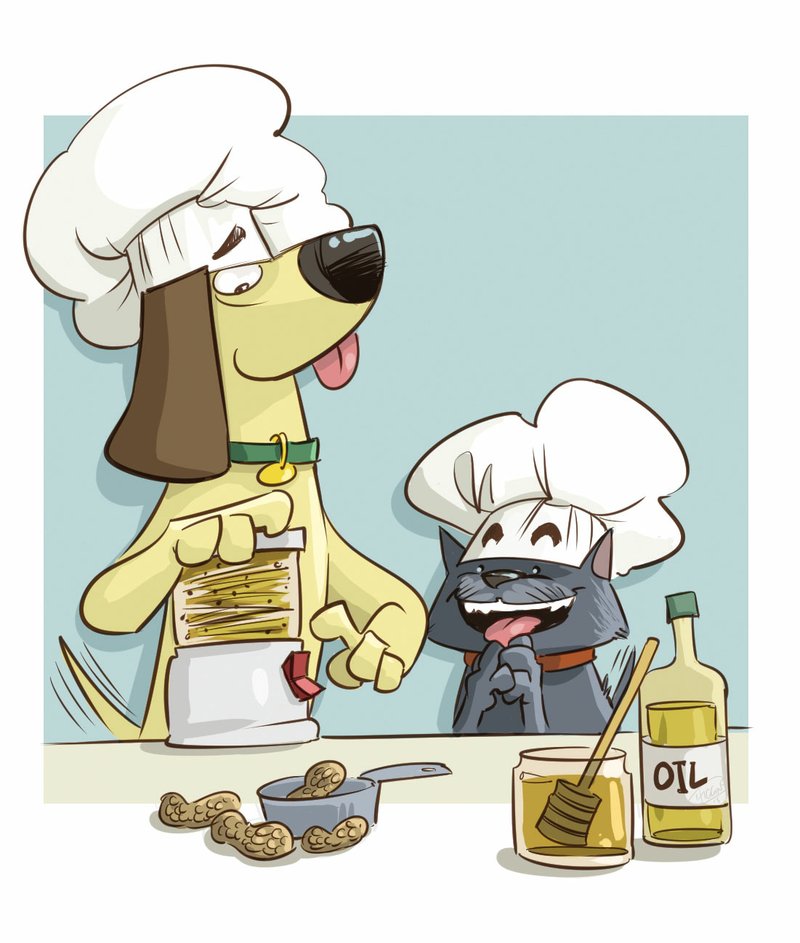I saw something on Facebook that said you shouldn't feed a dog peanut butter. I don't remember exactly what it said. I am concerned because my dog really likes peanut butter and I sometimes give it to her. It's always been OK. Why isn't it safe now?
The information you saw online has been circulating since at least May and concerns two new brands of peanut butter -- Nuts 'N More and Krush Nutrition -- that contain Xylitol, a sugar substitute that's toxic to dogs.
On May 28, veterinarian Jason Nicholas issued a warning about Xylitol-sweetened peanut butter at PreventiveVet.com, citing research by the American Society for the Prevention of Cruelty to Animals about the ill effects of the sweetener on dogs.
In 2006, the Journal of the Veterinary Medical Association reported that Xylitol can cause severe liver damage in dogs within 24 hours of ingestion. The article noted results of an ASPCA study of eight dogs that developed liver failure after eating products containing Xylitol. Of the eight, five were euthanized or died because of liver failure.
Since then, Xylitol has appeared on the ASPCA's list of substances that are toxic to dogs.
Xylitol is used as a sweetener in sugar-free gum and mints, nicotine gum, chewable vitamins and mouthwash. A powdered form is available for sweetening baked goods like muffins and cookies.
While Xylitol is considered safe for humans, the ASPCA says Xylitol not only can cause liver damage in dogs, but can result in hypoglycemia, a condition created by a severe and rapid drop in blood sugar levels. A dog suffering hypoglycemia will show symptoms including weakness, lethargy, loss of coordination and seizures within 30 minutes of ingesting Xylitol. Without immediate treatment, the dog could die.
The ASPCA and veterinarians advise dog owners to read food labels carefully before feeding a dog anything to ensure the product doesn't contain Xylitol. They're particularly concerned about peanut butter because dogs love it and owners like to give their dogs what they love.
Giving peanut butter as an occasional treat is still OK, as long as it does not contain Xylitol. To be completely on the safe side, you might consider switching your dog to a "natural" peanut butter that contains no sweeteners or salt. Or you might make peanut butter with dry roasted peanuts and virgin coconut oil. My dog would do anything asked of her if the reward was a bite of homemade peanut butter.
To make peanut butter, start by running a cup or two of peanuts through a food processor until they are finely chopped, then blend in oil as needed to achieve the consistency you prefer. If you want thick, sticky peanut butter (useful for giving a dog medication), then mix in only a small amount of oil. If you like spreadable, smooth peanut butter, just add more oil. Start with a teaspoon and work your way up. If your dog has a bit of a sweet tooth, you can add a tablespoon of honey to the mixture.
When making peanut butter, you probably want to make enough for yourself. It's tasty stuff.
For people who may be wondering about Xylitol's effects on their feline friends, the ASPCA says Xylitol isn't known to be toxic for cats.
Family on 06/24/2015
